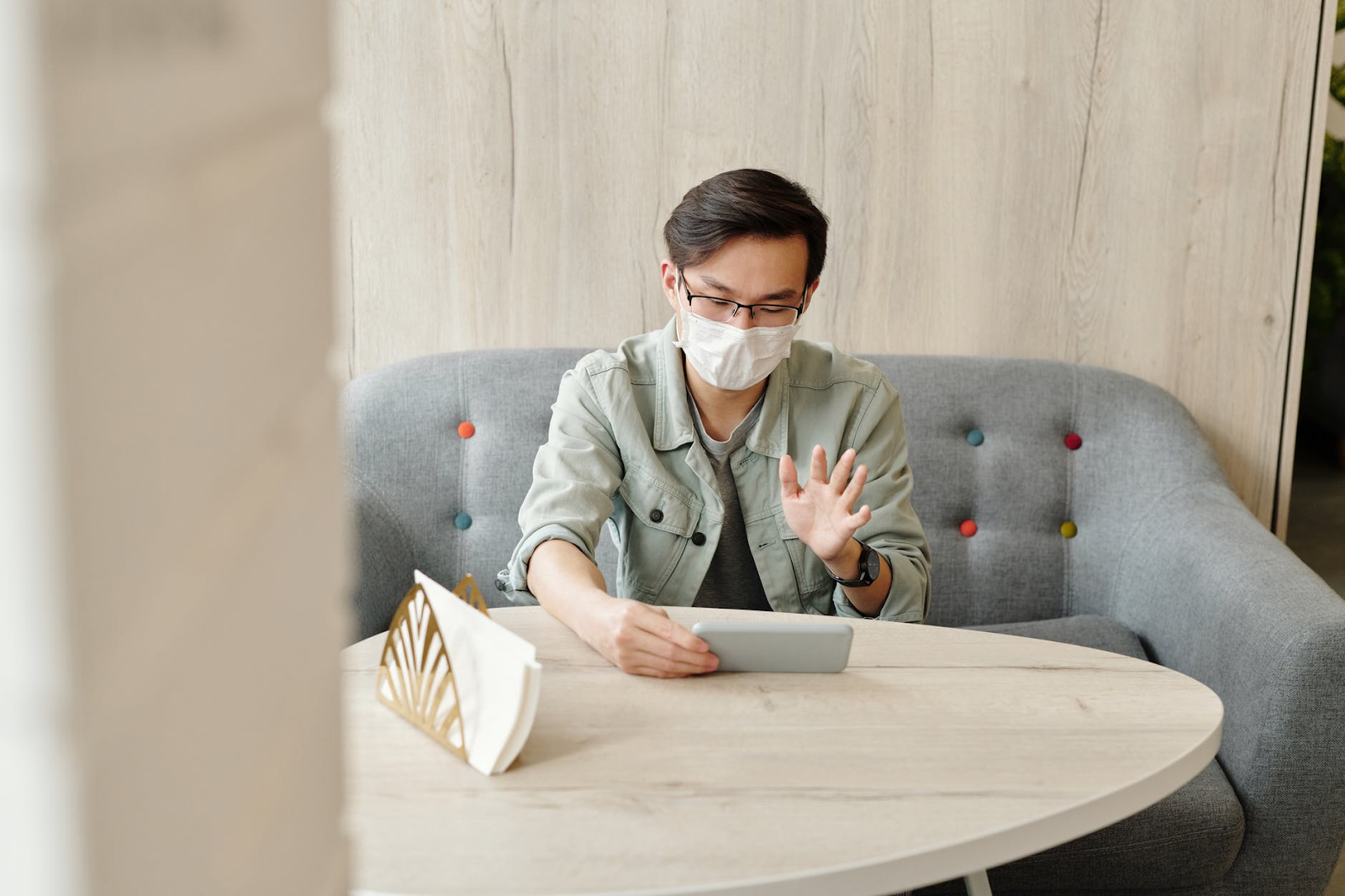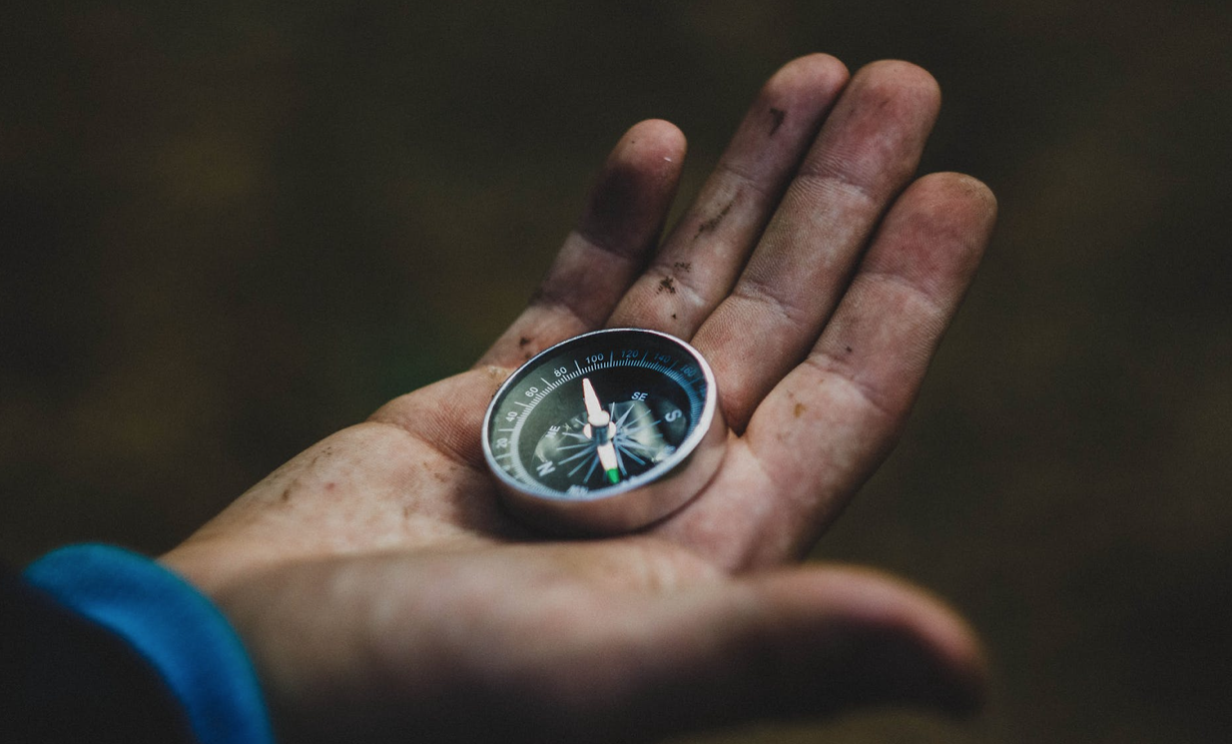Image courtesy of Pixabay via Pexels.
This pandemic has rattled us all. It has turned the way we ran our world on its head, shaking it to see if anything falls out of its pockets. Our way of living and navigating our world is drastically different, relying more and more on virtual and less on social or physical.
Virtual or socially distanced hangouts may be the new norm, allowing you to feel some sort of connection to others… but how is your connection to yourself? You may be feeling lost, isolated, and “not yourself.” Maybe you feel like the world is spinning around you in chaos, and you’re not sure where you stand. Who are you even anymore?
Take a deep breath. We’re here to give you some guidelines to help you reconnect with yourself:
- Why you feel this way
- What you can do right now
- Resources you can tap into long-term

Why do you feel this way?
It’s a good question, probably with a lot of specific answers that change depending upon what-- or even who-- you’ve lost during this current COVID-19 pandemic. But when you get down to the nitty gritty basics of those specifics, there’s one word that describes it all.
Grief.
You’ve lost so much to this pandemic. Perhaps it was something as big and defining as your job or a loved one, but it is also the loss of routine and feelings of security and control over our lives. Everything about this virus has taken away our sense of safety in navigating our world, from questioning the safety of groceries and take-out food to the division over face masks.
This grief has even been dubbed “Coronavirus Grief” by the Mayo Clinic. Grief isn’t just an experience from losing a loved one, although that is probably grief’s most recognizable form-- and the pandemic has wrought much of that sorrow on the world. It is also a loss of the routines that defined our days and gave each part of the day or week purpose. Human beings thrive on routines that are only sometimes disrupted-- even from a young age, our brains and sense of being adore patterns and familiarity, which is why children love rhymes and “bedtime routines” cue our brains to trigger sleep.
You can recognize this grief in a few ways. You might be feeling shut down or numb. Alternatively, you could be angry or unable to stand being around other people. Feelings of intense restlessness, constant procrastination that’s out of character for you, under or over eating, fatigue and a general sense of being “worn out” are all symptoms. You could even have nightmares.
As you can see, symptoms range, but they are all stemming from that sense of loss and grief that has consumed our society. Without falling into trite sayings or memes, we want to assure you that it’s okay to have these feelings, as long as you recognize that there are actions you can take-- and then you act on them.

What you can do right now to help recenter yourself
So let’s talk about some of the actionable items that you can start doing right now to help regain some of that sense of self. Some of them are small, and others will take more time. We’ll get into those later, but for now, let’s focus on RIGHT NOW.
Much of the grief we’re experiencing lies in loss of routine, so let’s start with ways to create a new routine for yourself.
Got a pen and paper right now? Or a notebook lounging away, unused? Dig some up and start writing down what you’re grateful for. Keep writing in it every day-- add small things, big things, specific and vague things. But every day, write down 1-3 things for which you are grateful.
Set the time aside every day for your journal. You could also turn it into an art journal, which has proven to be a very effective method for all ages dealing with grief. If you have kids, this is also something you can do with them every day so that you all have time together, and time to work through your emotions together.
Try setting a time frame for hitting breakfast, lunch, and dinner, even if it’s just snack-sized. If you find yourself prone to over-eating, put all of the food away once your plate is full. Sometimes the extra work of needing to unpack and reheat food gives your brain enough time to catch up to the fact that your belly already has enough food in it. Or make yourself a deal--if you’re still hungry by the time all of the dishes have been hand-washed, dried, and put away you’re allowed to have one more thing.
One of the easiest and most overlooked methods of routine, self-care, and self-discovery is setting aside time to breathe, and paying attention to how you breathe. This may sound kookie and like we’re about to tell you to go hug a tree (hey-- Bob Ross said trees are people too!), but hear us out.
Breathwork gives you back your cool-- it gives you a moment to tap into the mind-body connection, and check in with yourself. Tension decreases, blood pressure drops, and your heart rate normalizes. It also lets you see how you’ve been breathing-- are you holding in, breathing shallowly or quickly? Slow, deep breaths to the count of three-- in through the nose, down into the belly, out through the mouth-- are the most effective actionable item that you can do anywhere, anytime.
We recommend you do it several times a day, since it’s quick and easy. It might help to put reminders in your phone to help you set your breathwork schedule and stick to it.
Another way to add more structure to your life is to stay on top of shopping and repairs. Purchase necessities and pantry staples before you run out, and make sure repairs are done quickly and well. The way this helps to add structure is that it takes the opportunity for frustration and temper flares away from an already difficult time. So if you lose or break your phone charger, get a new one right away-- don’t wait and constantly borrow someone else’s until you both need it at the same time and get into an argument. If you say you’re going to fix the ripped hem in your favorite loungewear pants, do it today, not tomorrow or the day after.

Longer-term resources to support yourself
But what about tomorrow or the day after? Finding yourself when you’re feeling lost, numb, or disassociated doesn’t have an overnight cure. Grief doesn’t have a snakeoil fix.
Setting some boundaries is a great start, and one that you should hold yourself accountable for. These boundaries aren’t just for time allotted to spouses, friends, etc. They also apply to your media and news consumption-- compassion fatigue is real, and so is anxiety. Do yourself a favor, and restrict yourself to 15 minutes each day in the morning, and maybe 5 at night, to check the main headlines on the topics you really care about. Then shut off the news. Put Facebook notifications on mute and stop scrolling. Feeding into the negativity of the situation is not a healthy way to deal with it. Setting boundaries isn’t running away from or avoiding reality-- it’s choosing to face it on your own terms in doses that are easier to digest without triggering yourself.
Exercise regularly, and try to set a solid sleep schedule. Both exercise and sleep are key to body maintenance, and both drastically affect hormones, stress levels, and emotions.
See your therapist regularly, even if it has to be a virtual visit instead of an office visit. If you don’t have a therapist, now is a good time to get one! While it is possible to handle grief on your own, having a therapist in your corner helps with accountability and routine, both of which can be hard to maintain during the pandemic. This is an especially good idea for those who have lost friends or family, and for those who have had job loss, as both can contribute to an identity crisis. Don’t worry if you don’t have insurance, as many cities and towns have sliding scale clinics.
Continue to take and monitor any medicines, symptoms, and side effects you may have. This is especially important if you already have a health issue or a mental illness such as depression or anxiety. Keep your doctor appointments, and check in with your pharmacist to make sure that no new side effects have been discovered.
If your medicine is no longer working, talk to your doctor. There are plenty of alternatives to traditional medicines. Are your antidepressants not helping? Anti-anxiety medicines not as effective as before? Check out the alternatives like Transcranial Magnetic Stimulation, which are non-invasive and highly effective treatments with few, if any, side effects. It’s also proven an effective treatment for PTSD, as it rewires the brain to function differently.

We’d like to add one last bit of advice. Whether you say it to yourself in the morning, afternoon, at night, or as an hourly mantra-- remember that this too shall pass, and you’ve survived tough times before.
We have faith in you. Stay safe, friends, and use the comment section below to help lift each other up!










